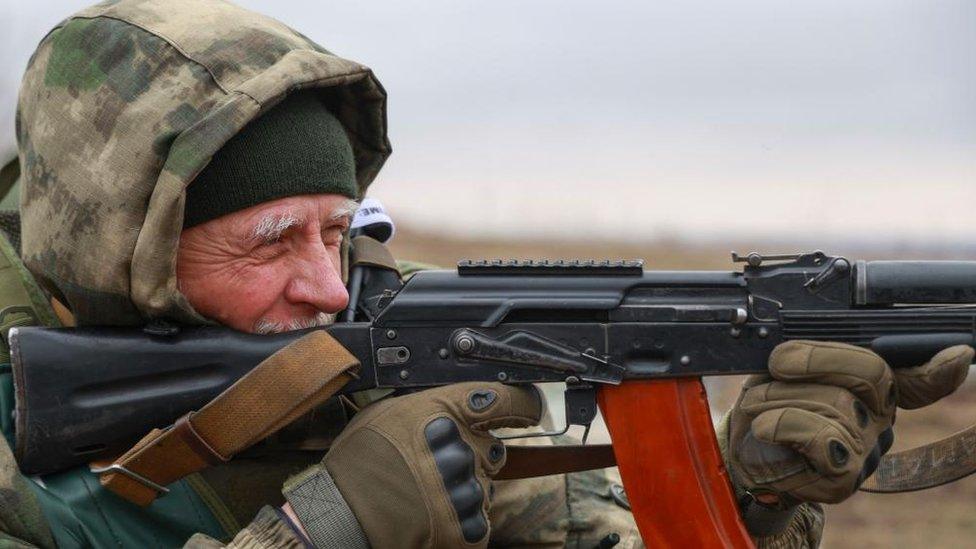Ukraine war: Village children of Hroza orphaned by Russian missile
- Published
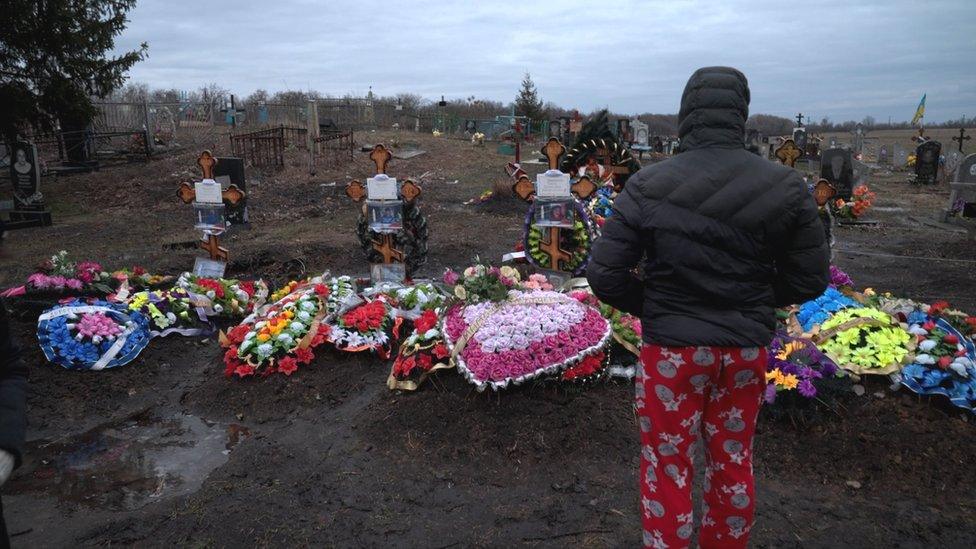
Dima Panteleyev looks at the graves of his mum, dad and grandparents who were all killed in one missile attack
Teenager Dima lost his mum, dad and two grandparents when they were all killed in a missile attack on his village of Hroza in north-eastern Ukraine last October.
"I still can't grasp it completely," the 16-year-old tells me.
"Now I am responsible for our house," he says.
He adds that he feels most sorry for his youngest sister: "Before this happened she didn't like it when I hugged her. Now she wants to hug me all the time."
On 5 October 2023, a missile struck a cafe in Hroza, in the Kharkiv region of eastern Ukraine, killing 59 people - a fifth of the village's total population.
At least one member of every family had gathered at the cafe to attend a funeral reception for a Ukrainian army volunteer.
Many who died there were parents, and Hroza now is known as a village of orphans.
The attack on the cafe was the deadliest single incident for Ukrainian civilians since Russia's full-scale invasion began on 24 February 2022.
Russia has never directly commented on the attack, although state media said that Russian forces had carried out strikes against military targets in the area.
Ukraine has said there were no military targets in Hroza. A UN report backed this up, stating that there was "no indication" of military personnel or any other legitimate military targets in the area.
Ukraine's security service suspects two former Ukrainian citizens, who defected to the Russian side, informed the military of the planned wake in Hroza.
The BBC cannot verify this. However, there have been other instances where Ukrainians living in areas close to the front line have been convicted of passing information to Russia.
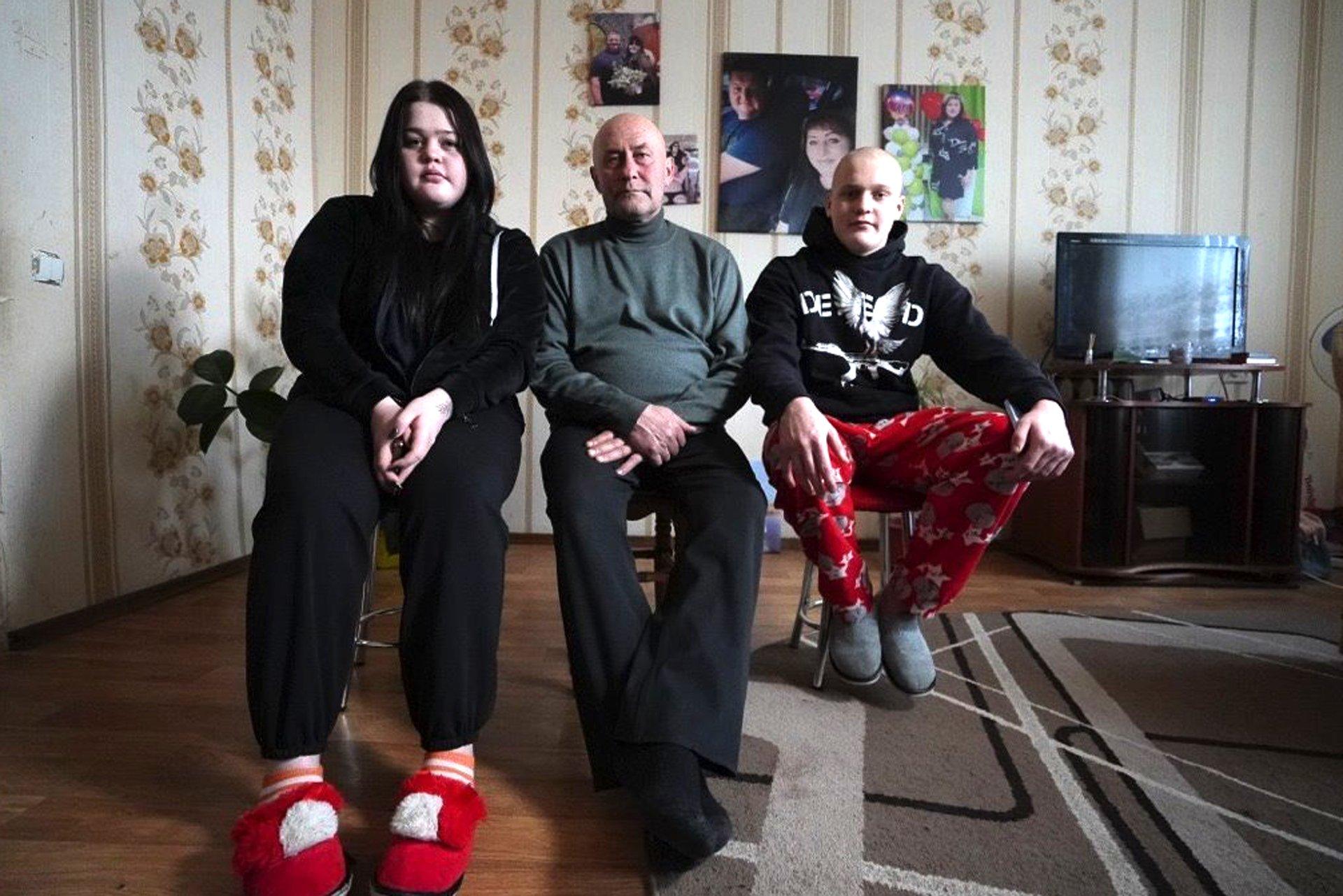
Dima (R) and his older sister Daryna (L) are now being brought up by their grandfather Valeriy Kozyr (C)
Before the war, Dima led a normal life as a teenager. He lived with his parents, spent time with friends or on his phone, and sometimes bickered with his sisters.
Now, standing in a cemetery on the outskirts of his village, Dima stares at the brightly coloured wreaths that cover the freshly dug graves of his parents and paternal grandparents.
They are still without tombstones. Photos of their smiling faces are attached to wooden crosses.
There are few visitors here.
Hroza is very close to the Russian border and heavy fighting is taking place around the town of Kupyansk, some 30km (18.6 miles) away.
Blue and yellow flowers - the Ukrainian national colours - stand out among the tombstones. The stillness is interrupted only by the sound of explosions in the distance.
After their parents' death, devastated and grieving, Dima and his sisters turned to their maternal grandparents for help.
"So many people were killed by the strike. The village was suddenly empty," Dima's grandfather, Valeriy, 62, tells me.
"The pain will never be forgotten. We had four coffins in the house. My mind understands what happened, but my heart still can't believe it."
He shows me the last photo ever taken of his daughter Olga and her husband Anatoliy. "They loved each other so much," Valeriy says. "Theirs was a good home."
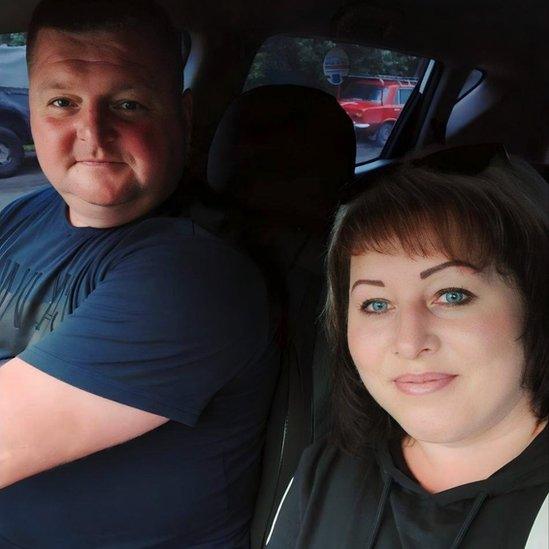
This was the last photo ever taken of Anatoliy and his wife Olga before they were killed
Valeriy says Anatoliy once joked that if he died before Olga, she would move on quickly and remarry.
"But Olga said, 'No, dear Anatoliy, we will die on the same day.' It was if she could see into the future," Valeriy says, rubbing his eyes and fighting back tears.
Valeriy describes the aftermath of the attack in October as "a sped-up horror movie".
He rushed to find his daughter, but didn't make it in time. A woman who was with Olga when she died said that her last words were: "I want to go on living."
Valeriy and his wife Lubov went on to adopt Dima, his older sister Daryna, 17, and younger sister Nastya, 10.
"My grandchildren had to stay with me, right here. I could not let this family be broken up," he says, adding that he was worried that if he had not taken them in, the children could have ended up in an orphanage.
Although Valeriy admits looking after his grandchildren isn't always easy, he says they have been there for each other during this difficult time.
"Dima is helpful around the garden and looks after the family's pigs," he says. "Daryna learned to cook and Nastya is so thoughtful and kind."
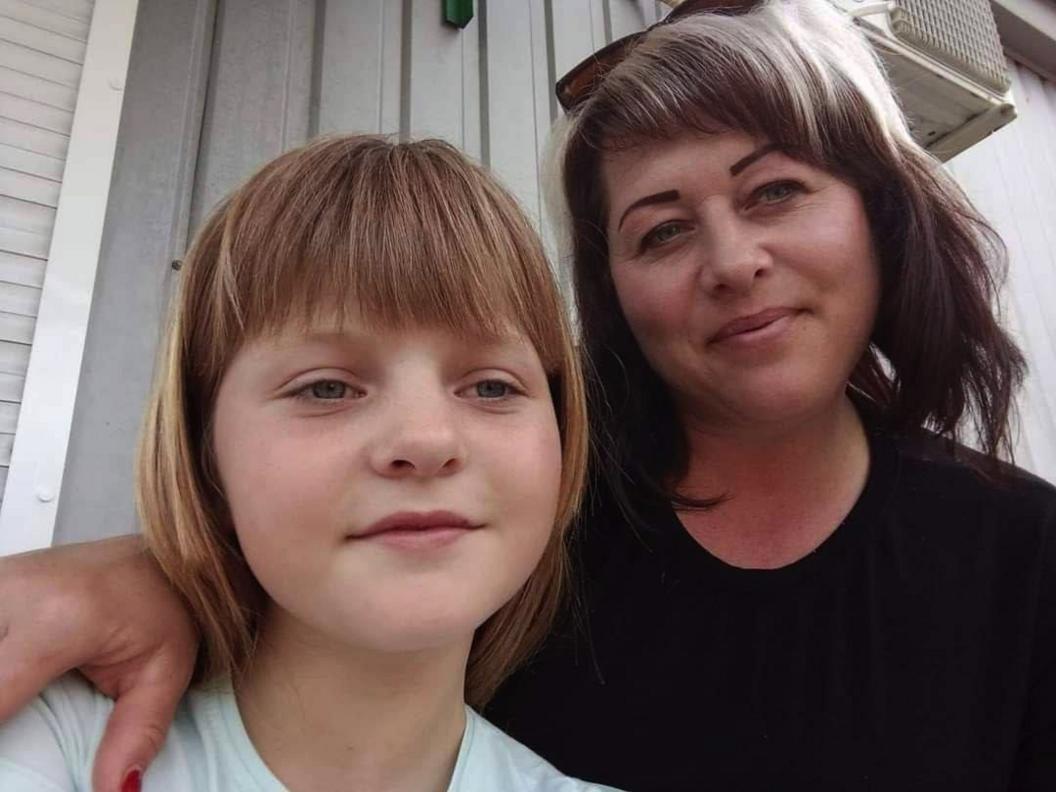
Nastya (L) with her mother Olga, who was killed in the missile strike on Hroza
Fourteen children in the village lost at least one parent in the attack, including eight who lost both. In all of these cases, grandparents or other relatives decided to care for the children so they would not be sent to orphanages.
Most people are still haunted by what happened. "I will never forget the funerals when these children were standing there silently and lonely, holding each other's hands," local resident Diana Nosova tells me. "My heart was broken."
After the attack, some orphans decided to move away to a safer area.
Among them is Vlad, 14, who went to live in western Ukraine with his aunt after his mum, granddad, uncle and eight-year-old cousin were all killed.
"I miss you very very much," he tells his grandmother Valentyna over a video call. "Me too," she replies.
Valentyna, 57, decided to stay in Hroza, despite losing most of her family in the attack, including her husband, daughter, son and a grandson.
I take a walk with her around the village where she has lived her whole life. Things are different now.
"This is a very scary place," she tells me as we walk past the damaged building where the missile hit. "It's hard, knowing that your children were lying here on the ground. Their death is here."
"The more time passes, the worse I feel. I have nobody. Almost no-one survived."
Valentyna says she gets comfort from her pets - two dogs and a cat called Stephan.
She says her priority now is her grandson, Vlad. She wants him to get a good education. She video calls him frequently and has paid for him to go to extra IT classes.
But most importantly she wants Vlad to be safe, and says she is glad he is no longer in the Kharkiv region, which has had little respite from violence since the war began in February 2022.
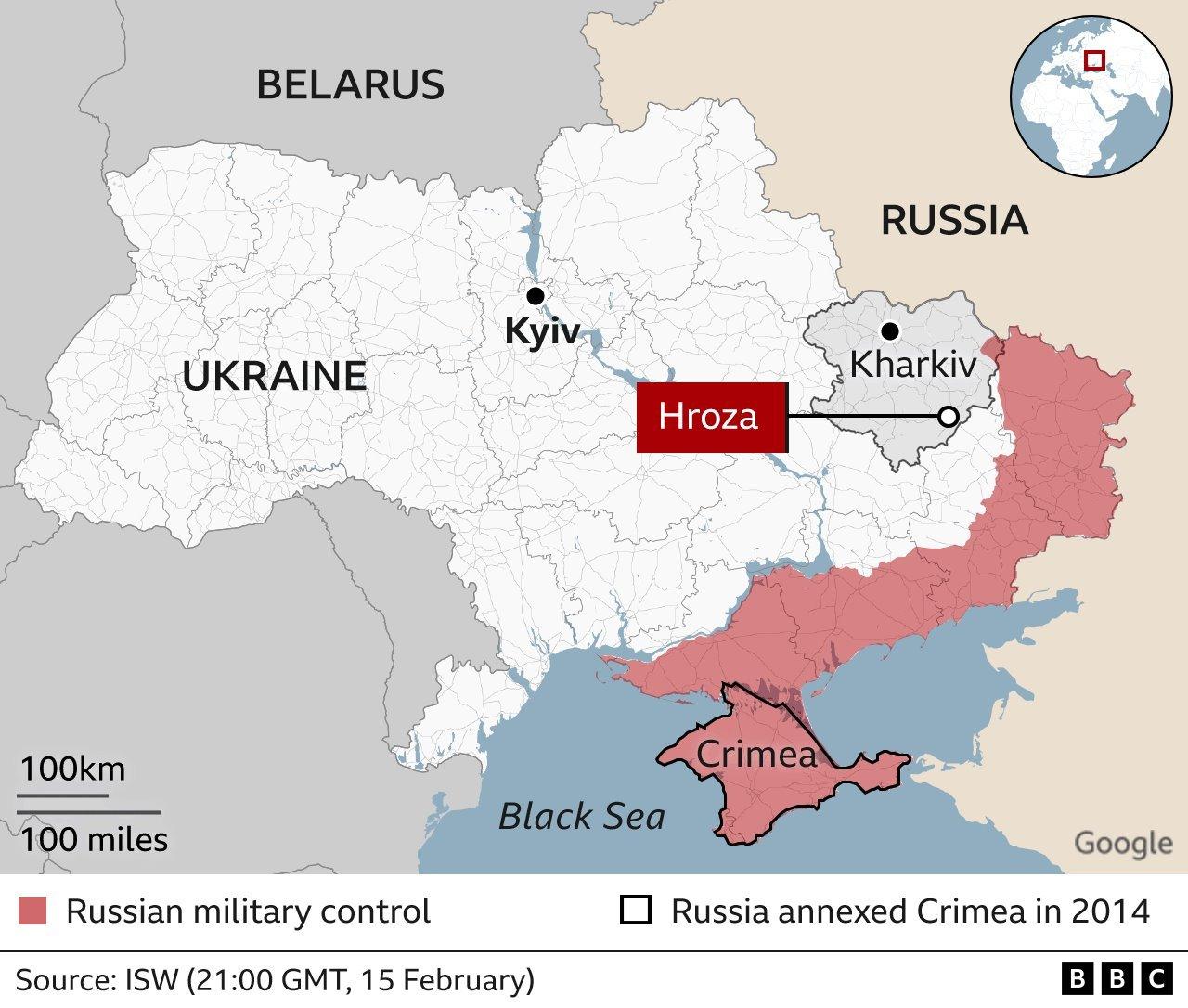
The region, including Hroza, was captured by Russian forces early on in the invasion. It was recaptured by Ukraine in a major counter-offensive in September 2022. But as the war rages on, the area continues to be targeted by Russian drone attacks, bombs and missiles.
Back at Dima's house, his older sister has put up photos on the wall of their late loved ones.
As they try to rebuild their lives, their grandad Valeriy remains positive: "All is fine," he says.
This may be wishful thinking, as the end of the war is nowhere in sight and Russia is amassing more troops in the nearby town of Kupyansk.
But despite everything that has happened here, Valeriy insists on being upbeat.
"If I see that my grandchildren are all right, that they smile, I feel relieved," he says.
"As long as you are alive, you should have hope."
Additional reporting by Dmytro Vlasov and Helen Devlin
Related topics
- Published6 October 2023
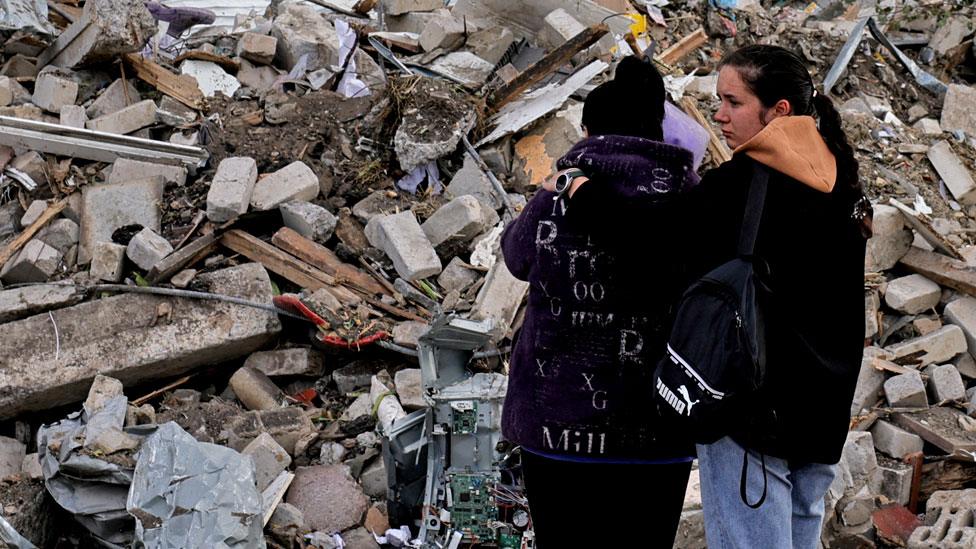
- Published6 October 2023
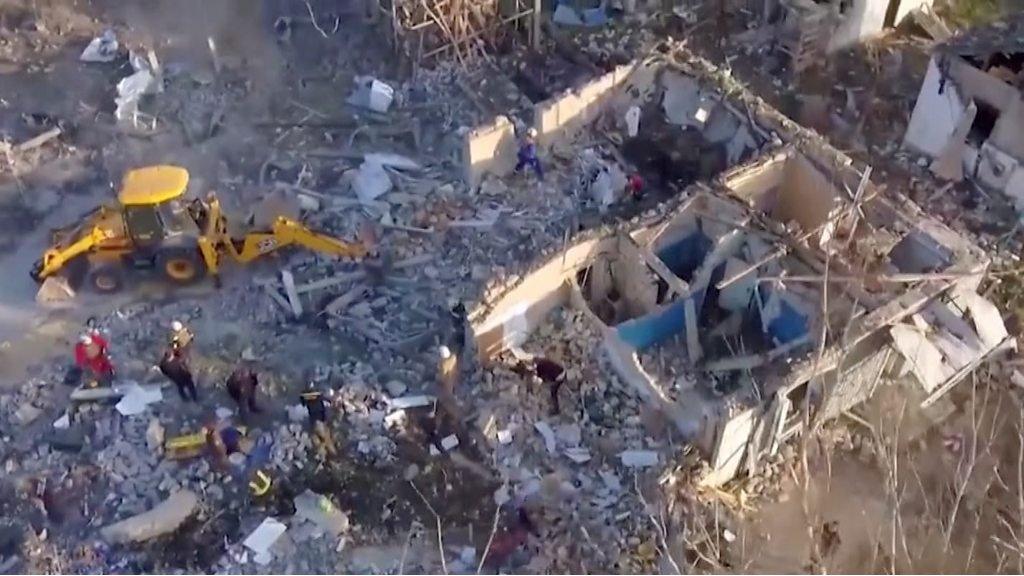
- Published6 October 2023
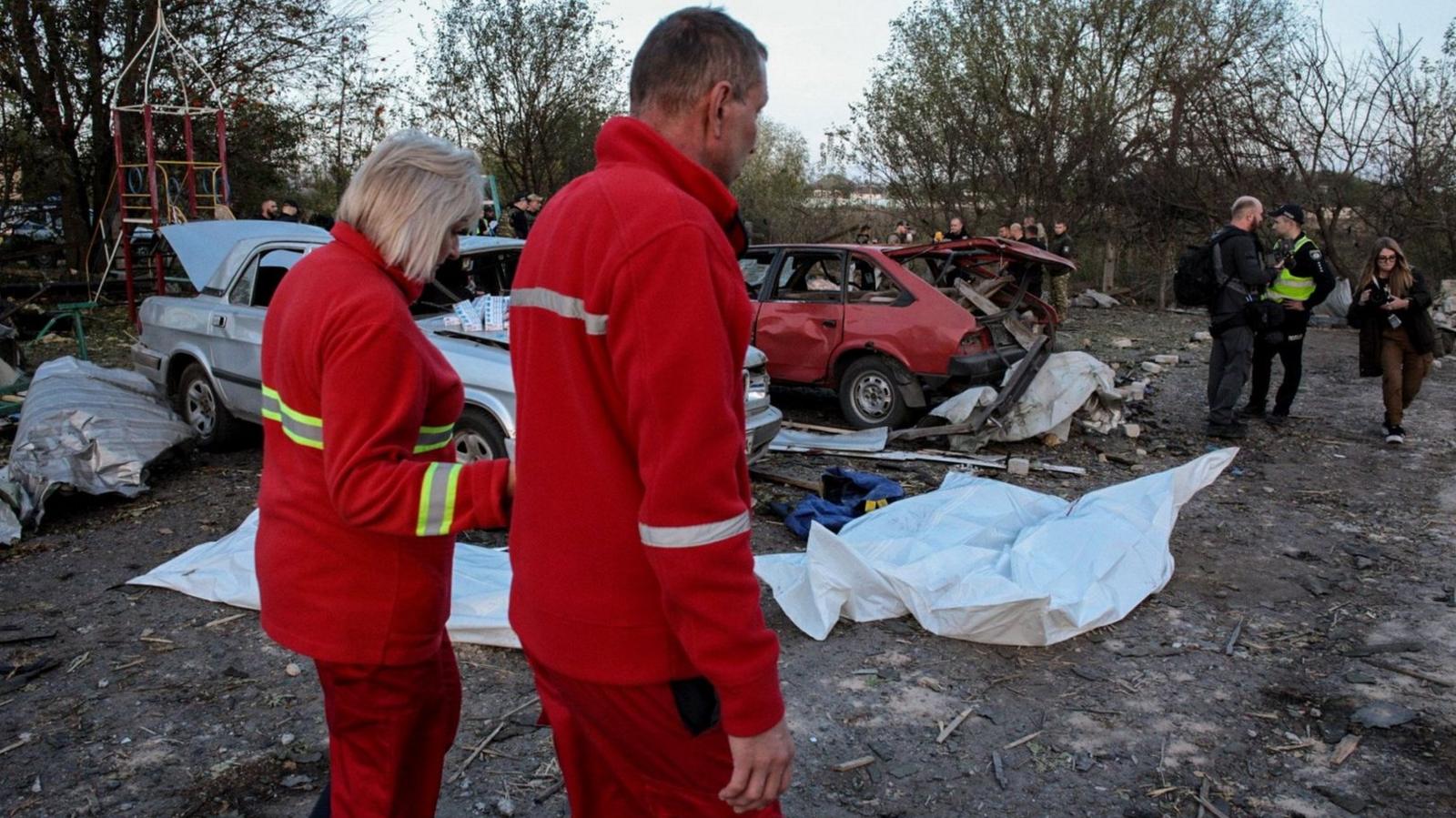
- Published9 February 2024
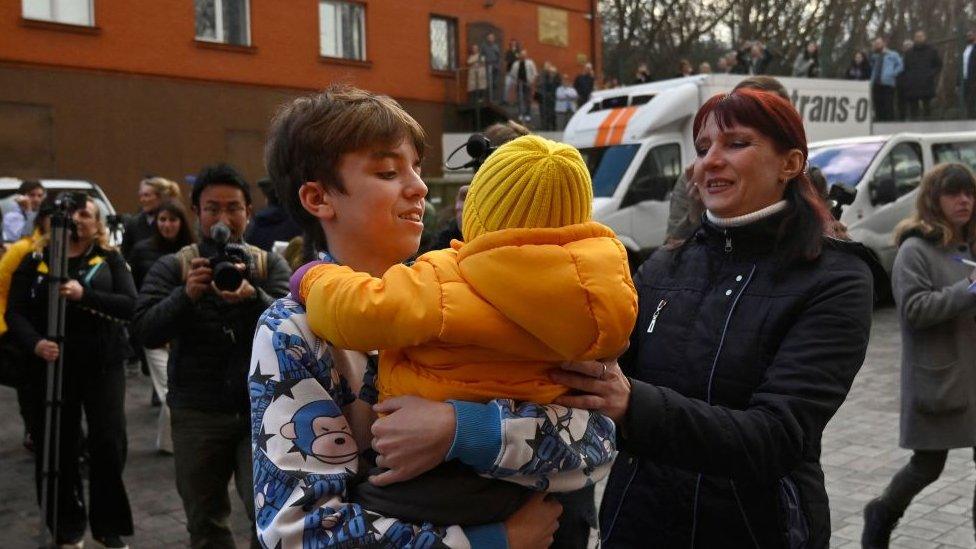
- Published20 February 2024
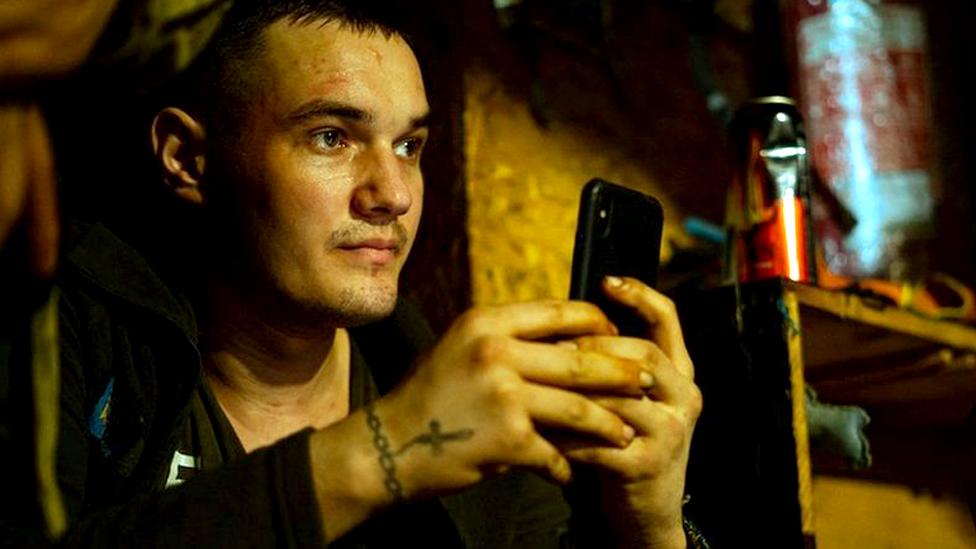
- Published17 February 2024
